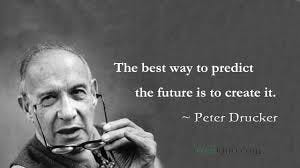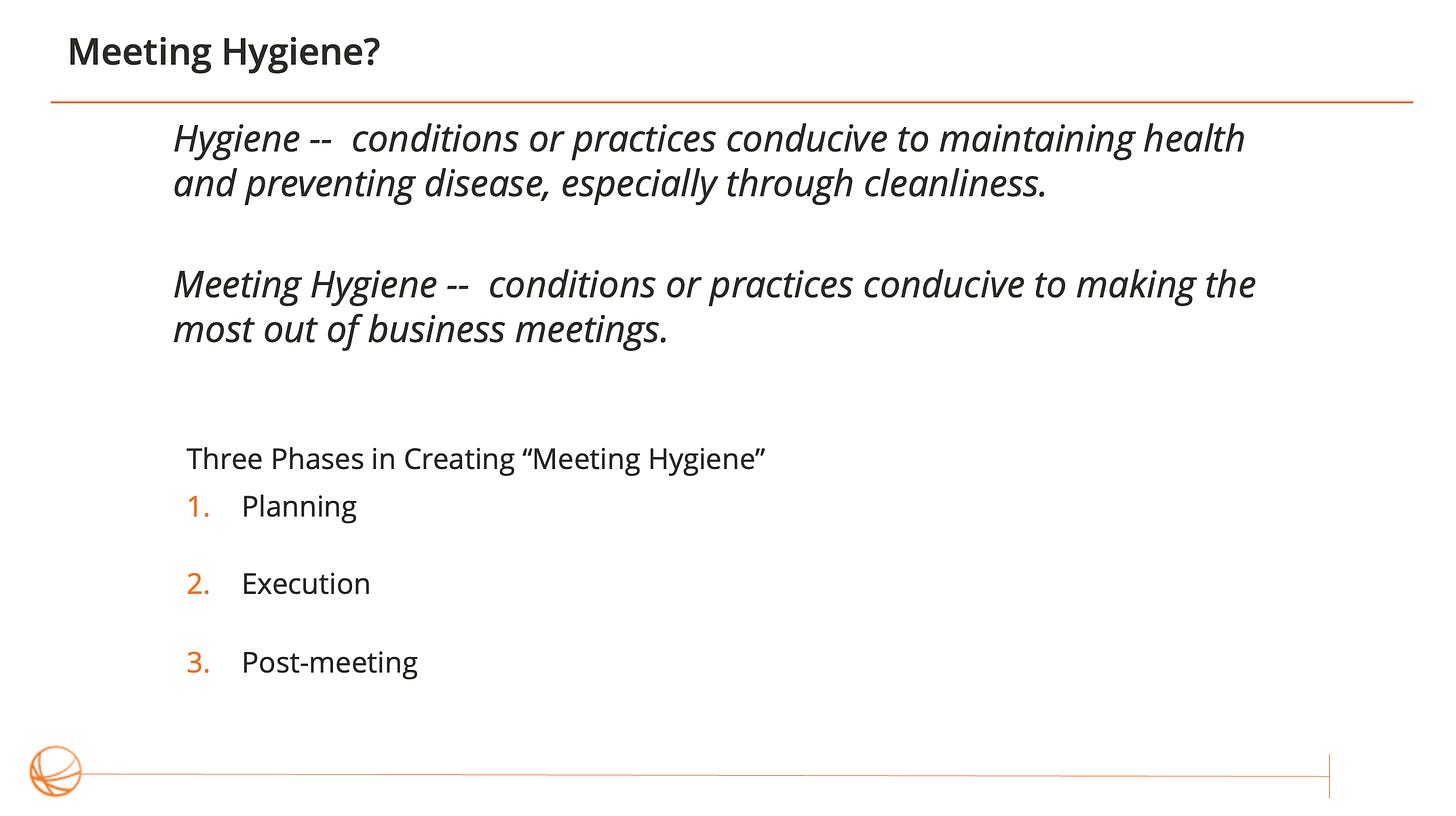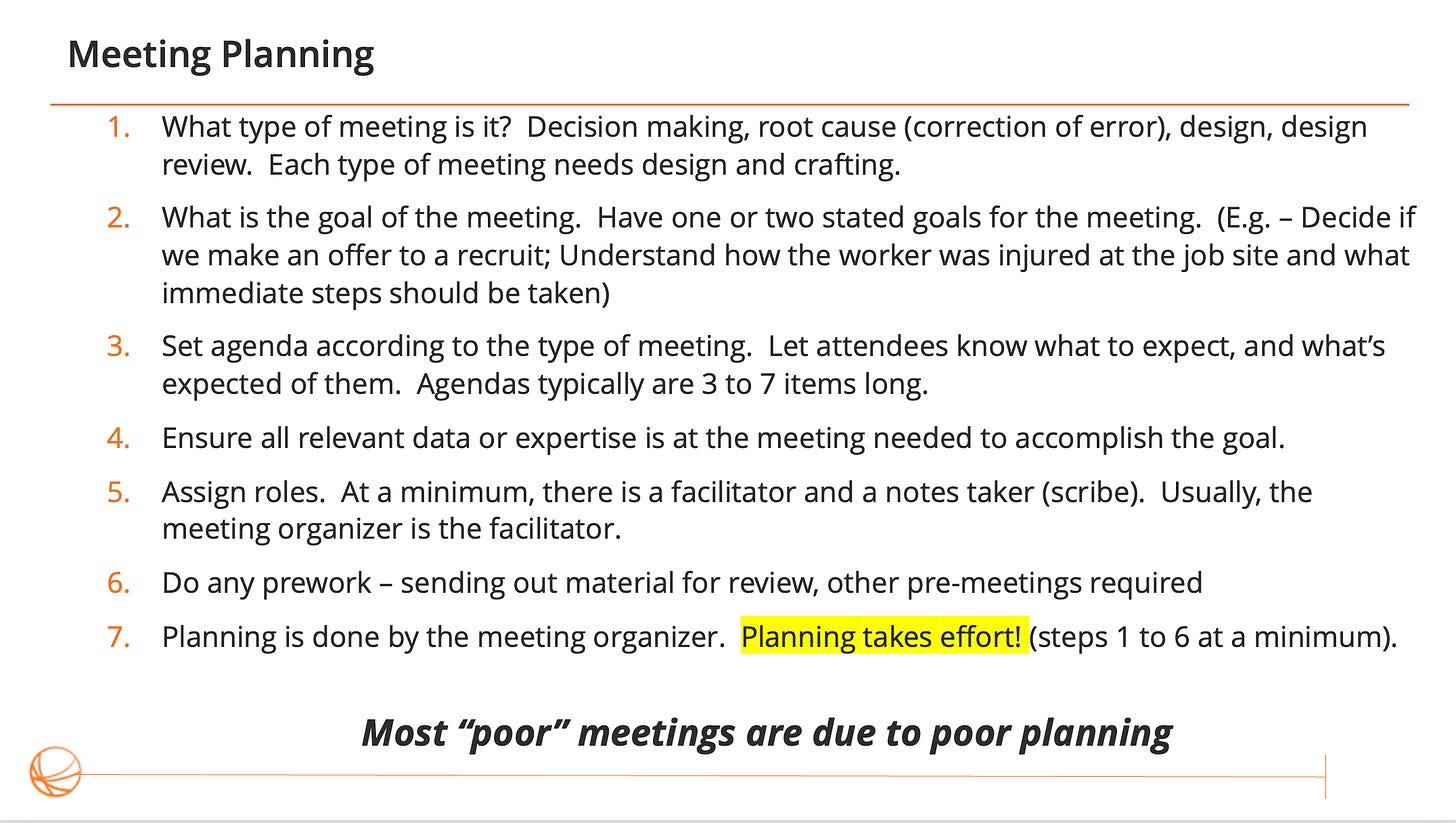Insights from Peter Drucker's Iconic Book "The Effective Executive"
The Definitive Guide to Getting the Right Things Done
Strategies and Techniques for Change Agents, Strategists, and Innovators
There’s only a handful of business books that I recommend to almost anyone. Peter Drucker’s The Effective Executive is on that shortlist. It’s one of the few books I try to re-read every couple of years.
The book's premise is that being an effective executive is not in managing others but in managing yourself. This is an empowering philosophy as we have complete control over our own behavior.
With that setup, here are a few of my key insights from The Effective Executive.
A Stunning Introduction
The introduction to The Effective Executive is a concise, insightful, and actionable outline of personal businesses practices if I could only always do live these practices! A performance management system or leadership class from this first chapter.
What made them all effective is that they followed the same eight practices:
They asked, “What needs to be done?”
They asked, “What is right for the enterprise?”
They developed action plans.
They took responsibility for decisions.
They took responsibility for communicating.
They were focused on opportunities rather than problems.
They ran productive meetings.
They thought and said “we” rather than “I.”
The first two practices gave them the knowledge they needed. The next four helped them convert this knowledge into effective action. The last two ensured that the whole organization felt responsible and accountable.1
For any team — business or otherwise, a leader who incorporates these eight practices into their approach will be a great leader.
Focusing on just one of these, I learned something from “focus on opportunities rather than problems.” Is this just semantics in calling our problems “opportunities for improvement"? No! Drucker outlines that executives need to be “scanning” for various market opportunities and that management meeting should focus first on opportunities and then, only when all opportunities are dealt with, are problems dealt with. This positive, leaning-forward posture toward the market does at least two things. First, it creates a customer and market orientation instead of an inward-facing orientation. Second, it creates an empowered organization to solve problems at the point of operation, versus one needing to be told how to fix a problem.
Running Productive Meetings?? What percentage of your work time do you spend in meetings? 25%? 50%? More? What percentage of these meetings are needed and productive?
(At the bottom, I have added an appendix with a “meeting hygiene” manual. Let me know what you think)
—Subscribe to The Digital Leader Newsletter for Free!
Decision Making
Drucker dedicates two chapters to decision-making. Two critical concepts are understanding if the situation is a generalized one in which we should seek a principle to make the decision or an exception with no underlying principle. He dives deep into understanding that most situations have options containing compromises. These options are more opinion-based than fact-based and thus are based on hypothesis. Peter gives the practical advice that opinions come with a plan to test the decision (since it is based on a hypothesis). This technique of seeing how a decision can be tested helps speed up decisions and minimize risk. Finally, Drucker outlines that a major part of decision-making, and typically overlooked, is figuring out how to put them into effect. Repeated communication is the key to putting decisions into effect.
They took responsibility for communicating
Crowd Sourcing
For the rest of my review, here are a few insightful “customer reviews” from Amazon:
Know Thyself —
Where and how do I spend my time? Am I staying busy or achieving results? What are my strengths? Is there a system to my decision-making? Am I a reader or a listener? These are a few of the questions asked in my reading of The Effective Executive.
Am I an executive?
There’s only one Drucker…
Although his examples are dated, Drucker still lays out the clearest explanation and game plan for anyone who finds themself in the position of leading a company. This book is about leadership and management, and if you don't understand the difference, all the more reason to buy it.
Great advice on executive effectiveness
I like, for instance, how he describes the taking of responsibility for decisions: a decision has not been made until people know: the name of the person accountable for carrying it out, the deadline, the names of the people who will be affected by it, and the names of the people who will be informed. Simple, isn't it?
A penetrating observation is that in large organizations, people tend to be absorbed by what happens inside its boundaries and by perfecting a process regardless of the outside world. The removal of the executive from the customer base is fatal in the long run.
Another thought that I liked is that the effective executive does not make decisions by consensus but by what is right, even if the decision is not popular. The executive makes a few decisions, but powerful, rather than many razzle-dazzle decisions.
Who was Peter Drucker?
Peter Drucker ( November 19, 1909 – November 11, 2005) was an Austrian-American management consultant, educator, and author, whose writings contributed to the philosophical and practical foundations of the modern business corporation. He was also a leader in the development of management education, he invented the concept known as management by objectives and self-control, and he has been described as "the founder of modern management".
Drucker's books and articles, both scholarly and popular, explored how humans are organized across the business, government, and nonprofit sectors of society. He is one of the best-known and most widely influential thinkers and writers on the subject of management theory and practice. His writings have predicted many of the major developments of the late twentieth century, including privatization and decentralization; the rise of Japan to economic world power; the decisive importance of marketing; and the emergence of the information society with its necessity of lifelong learning. In 1959, Drucker coined the term "knowledge worker", and later in his life considered knowledge-worker productivity to be the next frontier of management.2
The Digital Leader Newsletter Meeting Hygiene Manual
(you can download this material at the bottom)
Let’s all work at being a more “effective executive”. Reach out if you’d like to discuss our effective executive development programs.
Onward!
John
—Subscribe to The Digital Leader Newsletter for Free!
About The Digital Leader Newsletter
This is a newsletter for change agents, strategists, and innovators. The Digital Leader Newsletter is a weekly coaching session focusing on customer-centricity, innovation, and strategy. We deliver practical theory, examples, tools, and techniques to help you build better strategies, better plans, and better solutions — but most of all, to think and communicate better.
John Rossman is a keynote speaker and advisor on leadership and innovation.
Learn more at
https://rossmanpartners.com
The Effective Executive, Peter F. Drucker, Introduction
https://en.wikipedia.org/wiki/Peter_Drucker











My favorite Drucker quote that I reiterate to my team multiple times a year is:
“If we did not already do this, would we go into it now?”
It is a great thought exercise to force yourself to take the outside view for a moment.
Thanks for the reminder about this book, John, it's timeless and , in my case overdue for a reread.